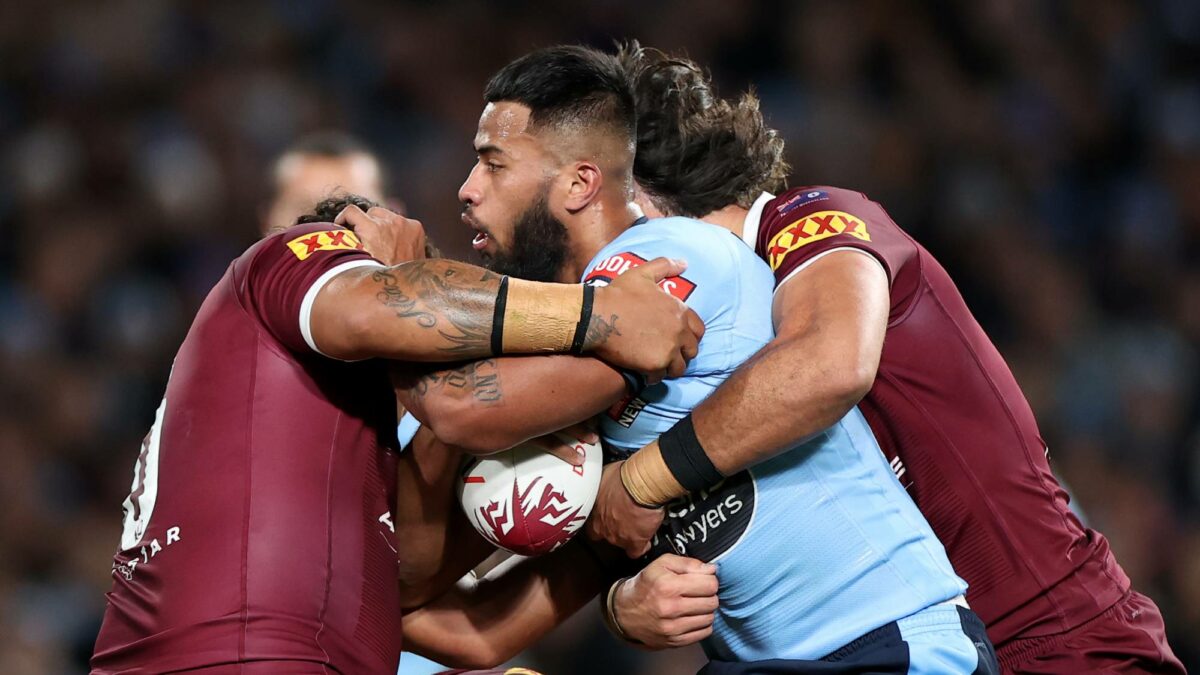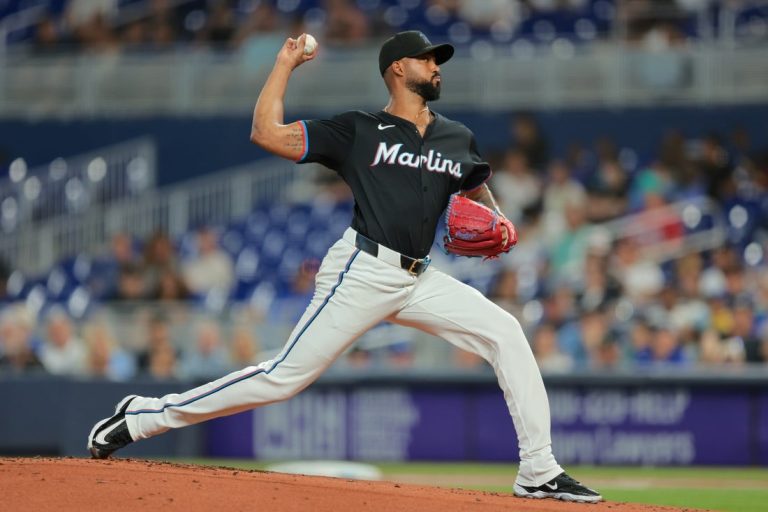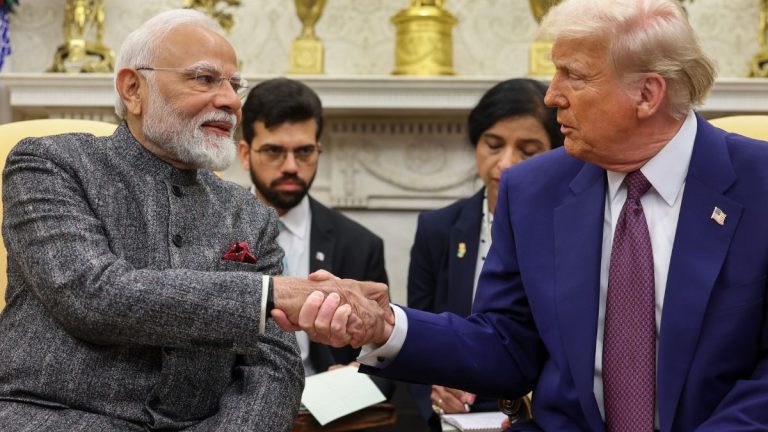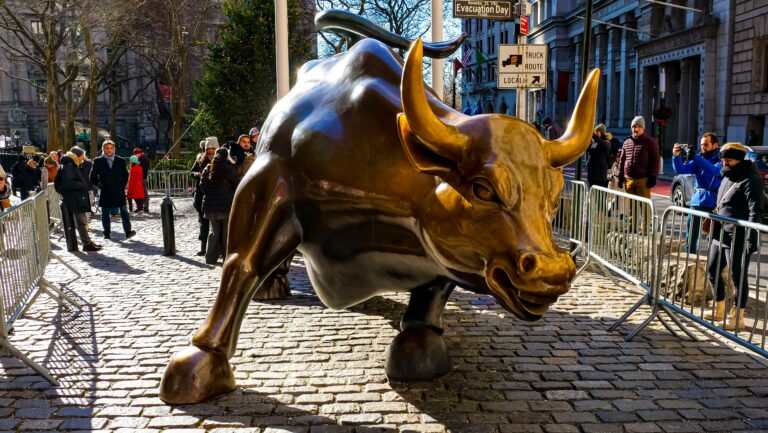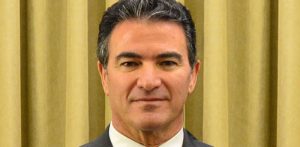The topic of State of Origin eligibility seems like it’s been around longer than the interstate concept itself.
But there is a new twist to the perennial talking point with momentum gathering for Tier 1 nations to be exempt from the dual eligibility brouhaha.
This basically means that players who grew up in NSW or Queensland (before they turned 13) but want to play for England or New Zealand in the international arena could be selected for Origin.
In a perverse way, it makes sense that rugby league has this ongoing issue.
The sport’s first superstar in this country, Dally Messenger, represented New Zealand and Australia in league after the future Immortal established himself as a Wallaby in union at a time when the lines were even more blurry about who could or could not represent the fledgling dominions of the British Empire.
For those who haven’t been paying attention over the past 45 years, Origin eligibility is a somewhat divisive topic in many ways.
The late, great Steve Rogers said it was ironic that he had to play for NSW even though he was born on the Gold Coast yet his son Mat represented the Maroons even though his birthplace was Sydney.
Recently we’ve had a situation where English international Herbie Farnworth has declared he would like to play for Queensland after moving to Brisbane as a 14-year-old (one year too late under the most recent rules).
And the Blues’ two most successful Origin coaches, Phil Gould and Brad Fittler, have said that if players qualify for NSW or Queensland they should be allowed to enter the Origin arena irrespective of the nation where their international allegiances lie.
Blues rookie prop Max King will become ineligible to play for England once he runs out onto Suncorp Stadium next Wednesday – he was born in Huddersfield (the birthplace of rugby league itself) while his dad, David, was playing in the Super League.
Titans star AJ Brimson recently switched his allegiances to England which ends any chances, under the current rules, of adding to the seven Maroons jerseys he has in his collection.
Roosters forward Victor Radley was picked by Fittler for NSW three years ago in the extended squad but never played Origin is now ineligible because he has represented England to honour his father’s heritage.
If the powers that be changed the rules to make it open slather so that any player who meets the state-based criteria is ready for Origin could, in theory, result in a situation where all 34 players on the field were not interested in playing for Australia.

Max King. (Photo by Jason McCawley/Getty Images)
International rugby league devotees have been thrilled with the rise of Samoa and Tonga and the increase in competitiveness in the Test arena.
Making NSW and Queensland eligibility open slather probably would never mean that all players in Origin have declared their international allegiances elsewhere.
But it could lead to a situation where the majority of players are happy to wear the sky-blue or maroon before splintering off to the Kiwis, Poms and the Pacific Island nations.
Payne Haas and Tino Fa’asuamaleaui have been tightlipped in public about their plans but they are set to be the next two Origin stars who are turning their back on the Kangaroos with both big boppers reportedly ready to turn out for Samoa later this year.
Of the players selected for Origin I in Brisbane next Wednesday, 14 of them are eligible to or already have represented an overseas nation.
Fa’asuamaleaui and Stephen Crichton are two players considered future captains of their state but will fans accept a skipper who does not want to then represent Australia?
Eligibility has been a delicate topic for Kangaroos coach Mal Meninga, who himself has Pacific Island heritage which he only fully learned about later in life.
To his credit, Meninga has not put pressure on players with dual eligibility and has declared he only wants to coach people who want to represent the Kangaroos.
He pulled off an alpha move on Kalyn Ponga last year when the Newcastle fullback withdrew from Kangaroos selection without even telling the coach. So when bans were threatened, he suddenly made himself available again before Meninga left him out of the final squad anyway.
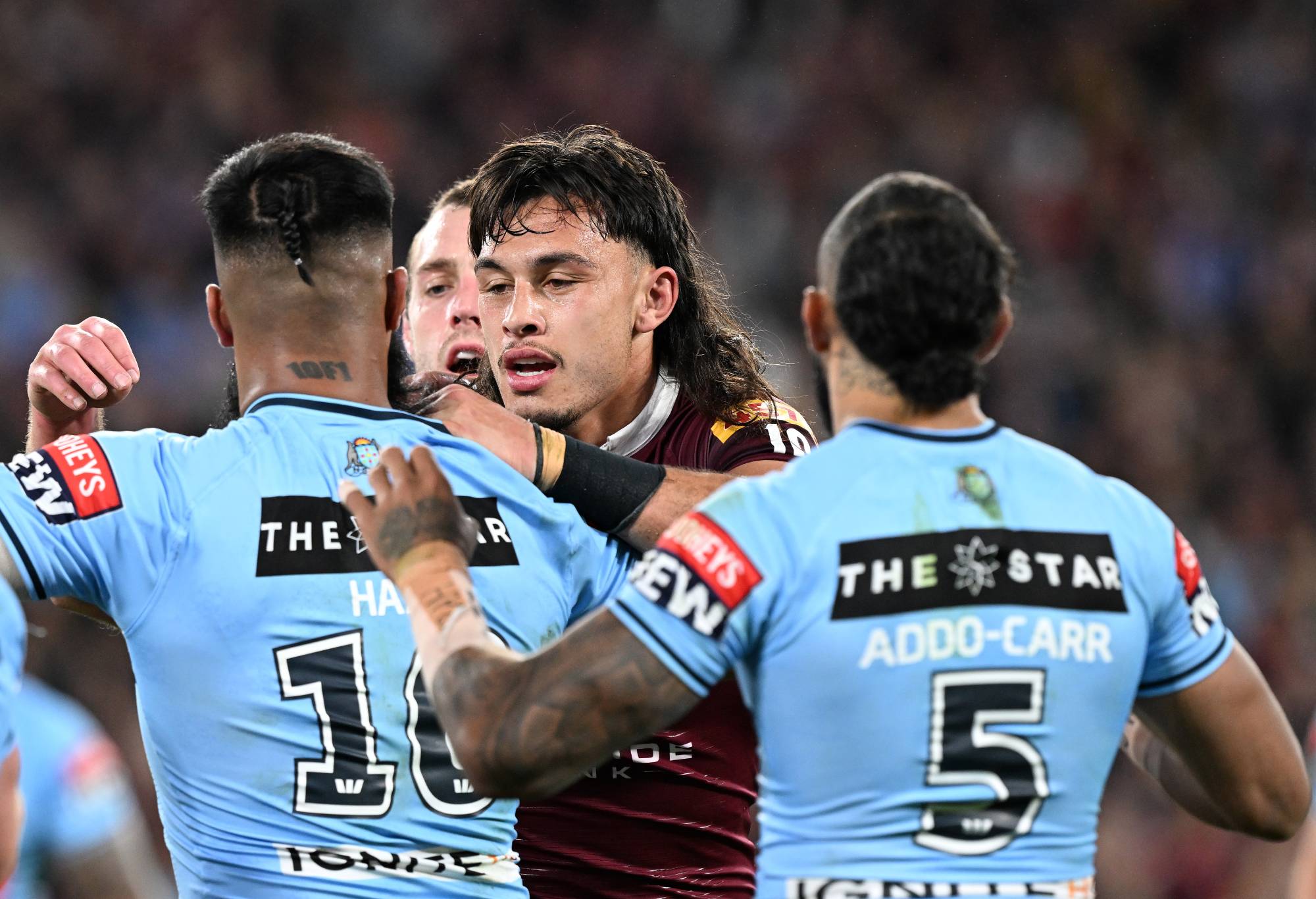
Queensland’s Tino Fa’asuamaleaui deep in conversation with New South Wales prop Payne Haas. (Photo by Bradley Kanaris/Getty Images)
If the Origin rules are changed, you can bet your bottom Kiwi dollar that Ponga will happily put his hand up for the Kiwis while also continuing to avail his services to Queensland.
With a World Cup looming at the end of next year and more players keen to represent their heritage nation than ever before, Meninga and the Kangaroos are no longer fait accompli winners of the trophy, which goes back to Gould’s point that opening up Origin eligibility will ultimately benefit the international game.
A player like Addin Fonua-Blake, or Jason Taumalolo a few years ago when he was in his prime, could have fast-tracked their development by representing NSW (where Fonua-Blake was born) or Queensland (where Taumalolo moved to with his family at the age of 12, without having to represent the Kangaroos.
They have both been prevented from Origin selection because they represented Tier 1 New Zealand before switching to Tonga.
Times have changed – Origin started as a way of ensuring players were able to represent the state where they came from but now it’s more complicated with a significant portion of each team’s talent pool also eligible to represent the nation of their birth or their family’s heritage.
It would not be “cheapening the jersey” or undermining international footy if eligible Origin players could also represent any other country, in fact it would be the opposite because it would make it even harder to get a start for NSW and Queensland.
And that should then mean the standard of Origin, the sport’s greatest showpiece, would rise even higher.
